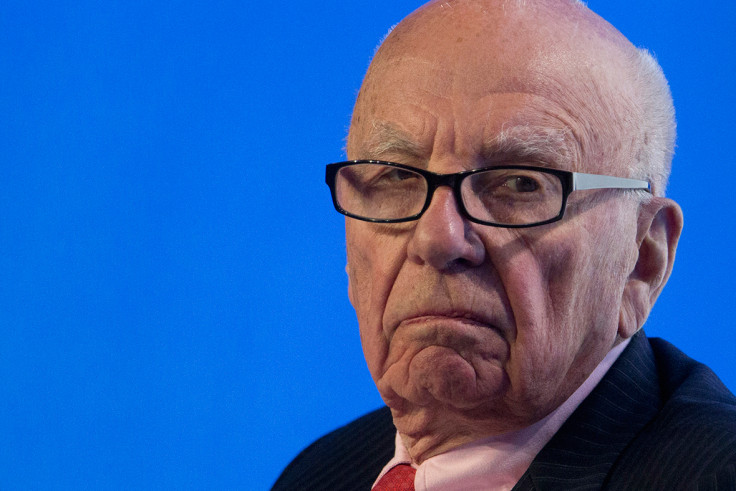Rupert Murdoch's £11.7bn bid for Sky blocked as it is 'not in the public interest'
Fox's offer values Sky at over £18bn but the deal would give Murdoch too much control over UK media.

Rupert Murdoch's bid to take full control of Sky has been provisionally blocked by the Competition and Markets Authority (CMA), which ruled the deal was not "in the public interest".
The media tycoon had hoped to secure 61% of the broadcast and telecoms giant via a £11.7bn bid through his company 21st Century Fox. The deal would have added the broadcaster to the list of Murdoch's assets in the UK, which includes the Times, the Sunday Times, the Sun and talkSPORT.
As it published its provisional ruling on Tuesday (23 January), the regulator said the deal would give the Murdoch family "too much influence over public opinion and the political agenda".
Anne Lambert, chairwoman of the CMA's independent investigation group, said: "Media plurality goes to the heart of our democratic process.
"It is very important that no group or individual should have too much control of our news media or too much power to affect the political agenda."
Currently the two companies are separate, but if Murdoch is successful, 21st Century Fox would gain access to Sky's 22 million customers in Europe. Sky has pay-TV operations in the UK, Germany, Austria and Italy.
Fox has previously argued that money it invests will benefit the UK's creative industries.
The CMA, which will publish its final ruling in May, said it had no concerns over whether the Murdochs would remain committed to meet broadcasting standards in the UK, should the deal have been allowed to go through.
"We will continue to engage with the CMA ahead of the publication of its final report in May," Fox said in a statement. "We welcome the CMA's provisional finding that the company has a genuine commitment to broadcasting standards and the transaction would not be against the public interest in this respect."
Fox's bid was approved by the majority of the Sky's shareholders in December 2016, but it was dealt a blow in March 2017, after UK culture secretary Karen Bradley said she was minded to refer the bid for further investigation on grounds that it would give the Murdochs too much influence over the UK media landscape.
However, the regulator's decision to provisionally block the merger means the deal is unlikely to go through, unless the two companies agree to a series of measures.
In November last year, Ofcom expressed "significant concerns" over the two options normally used to solve issues of media plurality, known as behaviourial and structural remedies.
The former would see Sky News appoint an independent board of directors and a five-year funding guarantee, while the latter would consist of a complete structural spinoff of Sky News.
However, Britain's telecoms regulator has said the first option would only be viable if Fox boosted plans for board independence and strengthen its funding offer, which the regulator has already proposed.
The structural remedy, meanwhile, was accepted when Fox submitted a similar bid for Sky in 2011 but would not be accepted this time.
Murdoch's first bid resulted in a deal to spin-off Sky News to quell media plurality issues, before the deal eventually was abandoned amid the country's newspaper phone hacking scandal.
The European Commission's competition authority cleared the deal in April last year, while campaigners, and senior politicians - including Ed Miliband and former business secretary Vince Cable - have met Ofcom in a bid to block the merger.






